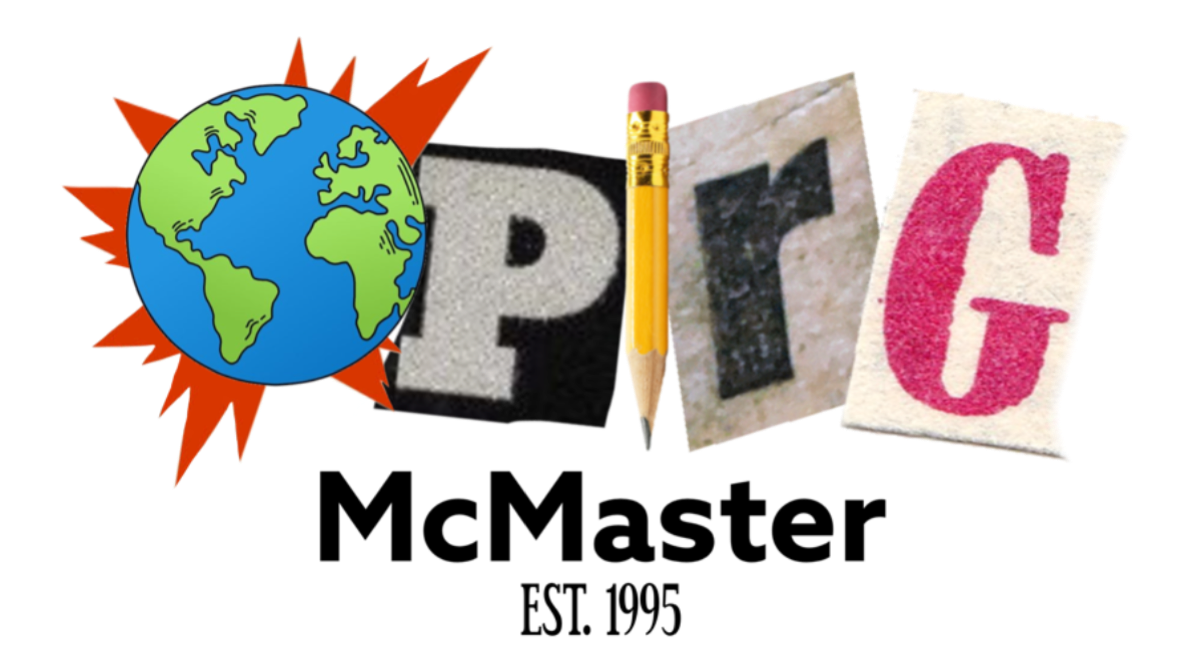BOARD PROFILE: Madelaine Cahuas
Madelaine Cahuas
interviewed by Kristina Mangligot
- Tell me a little bit about yourself
My name is Madelaine Cahuas and I just turned 23. I am an older sister and come from a large extended family of diverse, migrant heritages. My father is Peruvian and my mother is Romanian and I identify as a second generation Latina. I'm currently in my second year in the Health & Aging Master of Arts program at McMaster University. My work mainly focuses on the effects of neighbourhood "revitalization" on community members' perceptions and resistance to stigma as well as the intersections between housing, neighbourhood and health. I wish to pursue a doctoral degree and engage in critical research and teaching with my communities.
- What do you love about being an OPIRG Board member?
 I love being an OPIRG board member because I enjoy being in a space that facilitates creativity, openness and meaningful dialogue and action between students and community members. As an OPIRG board member I feel that I'm part of something incredibly greater than myself since OPIRG is a vital hub for countless student and community social justice and environmental projects that are essential to improving not only campus life, but strengthening the Hamilton community. Also, as a board member, I am able to learn about so many diverse and important initiatives taking place in and around campus and even globally. However, as a board member I can not only learn about such initiatives, but build relationships with students, support working groups and bring students and community members together through collaborating on special projects and events. It is also extremely motivating and inspiring to be surrounded by critically conscious and passionate students, community members and dedicated OPIRG staff. So what's not to love?
I love being an OPIRG board member because I enjoy being in a space that facilitates creativity, openness and meaningful dialogue and action between students and community members. As an OPIRG board member I feel that I'm part of something incredibly greater than myself since OPIRG is a vital hub for countless student and community social justice and environmental projects that are essential to improving not only campus life, but strengthening the Hamilton community. Also, as a board member, I am able to learn about so many diverse and important initiatives taking place in and around campus and even globally. However, as a board member I can not only learn about such initiatives, but build relationships with students, support working groups and bring students and community members together through collaborating on special projects and events. It is also extremely motivating and inspiring to be surrounded by critically conscious and passionate students, community members and dedicated OPIRG staff. So what's not to love? - What are the challenges of being an OPIRG Board member?
I feel my two greatest challenges are managing my time between OPIRG, school, work and my committments to other organizations, projects and activities as well as making decisions on applications of support. OPIRG McMaster receives so many excellent applications, it's very difficult at times not to award as much funding or support due to limits on our own funding.
- What other groups or organizations are you involved in besides OPIRG (if there is any)?
I am currently actively involved with the Organization of Latin American Students (OLAS) at McMaster. I am also a Graduate Student Representative for Health & Aging students and sit on a number of committees including, the Health & Aging Graduate Committee, the Gilbrea Chair in Aging & Mental Health Selection Committee, the Chair in Health, Aging & Society Selection Committee, the CUPE3906 Equity Action Committee, the President's Advisory Committee on Building an Inclusive Community, and the Black History Month Planning Committee. I also organize the monthly Health & Aging Speaker Series and work with Barrio Nuevo, a Latin American grassroots organization based in Toronto.
- What do you think is the best and most effective way of educating people about anti-oppressive behaviour? (I.e. Is it through books, news articles, schooling, etc)
I think it begins with engaging in critical dialogue and discussion where people actively listen and respond to one another in constructive ways. This can occur in classrooms, cafeterias, on the streets and any sort of meeting place you can think of. However, this in itself is at times difficult to do and it's not even enough, because dialogue and discussion must be followed with some sort of meaningful action, however small or large. I also feel that the roles people play in sharing knowledge about oppression and anti-opression differ according to their positionality, but that we can all play a significant role. Personally, my education in anti-oppression was never learned by my "formal teachers" or required readings in school (although that would've been great!). I began the learning process through key student mentors that took the time to patiently engage in conversations with me and point me to some wonderful authors and community leaders to begin developing my own political agenda that must always be linked with my communities. In addition, I learned anti-oppression from my family and the people in my communities present and past that showed me how to survive, resist and love.
- What social issue is most important to you that you think should be addressed?
There are so many important issues that I'm passionate about, but if I would have to choose one it would be health equity. I feel that it is extremely unjust for an increasing number of people living in Canada to suffer incredibly worse health outcomes than their wealthier counterparts. Lower life expectancies, higher rates of disease and dis/abilities is preventable and needs to be addressed.
